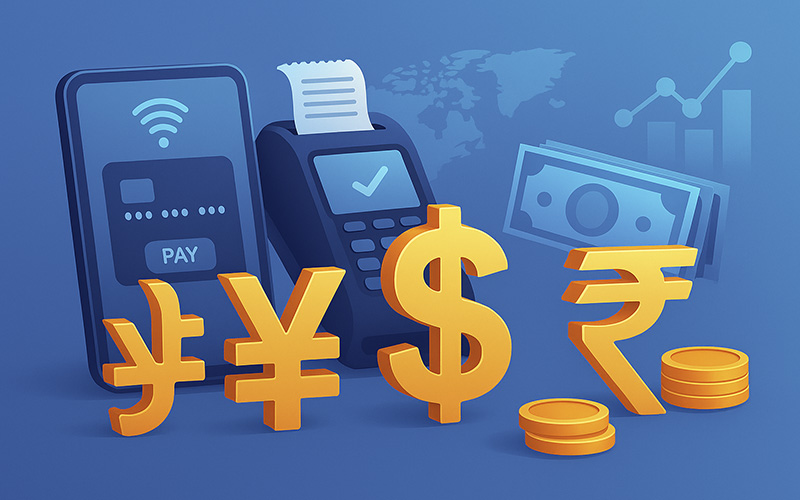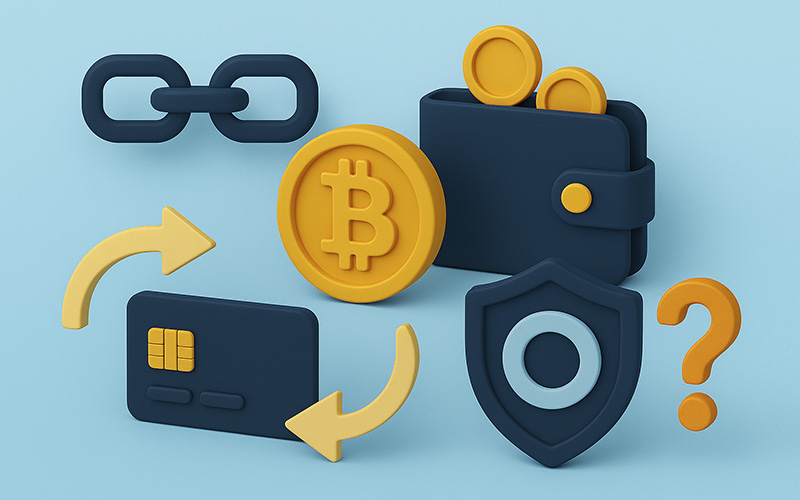Payments in iGaming: Deposits, Transfers, and Cryptocurrency
Online Casino Market experts have prepared a detailed guide on payment methods in the entertainment industry. It covers popular financial options, transaction routing, fees, and the role of reliable P2P partners in maintaining operational stability.

From our studio, you can order the highest-quality and modern software.
Why Gambling Is Considered a High-Risk Business
The segment is classified this way because banks and payment systems show increased caution when dealing with casino owners.
The main factors affecting this attitude are:
- Offshore licences. Many iGaming portals work under a permit from Curacao, Alderney, and other offshore jurisdictions. For financial institutions, such clients fall into a grey area of reliability.
- Chargebacks. Users can dispute transactions — sometimes due to errors, but often to return the lost funds.
- Fraud. There are money laundering and data theft attempts in the industry. Despite providers' active efforts to deal with offenders, hacker attacks, and information leakage remain a problem.
For these reasons, traditional PSPs are reluctant to cooperate with iGaming companies. Some block access to certain Merchant Category Codes (MCCs, which determine the type of business), while others impose limits or higher fees.
Transaction handling charges can reach 6–10%, while in other areas of online trading, this figure rarely exceeds 2–3%. Furthermore, up to 10% of funds are often held in a rolling reserve as an insurance fund in case of chargebacks and blocking.
Benefits of a Qualified PSP
It is important for entrepreneurs to choose payment companies that are focused on the iGaming sector. They deeply understand the specifics of high-risk money transfers, know how to work with the relevant MCC codes, and have a reliable infrastructure to handle large volumes of transactions.
Among the advantages of cooperating with a specialised PSP are:
- Access to high-risk acquirers. These firms already have established relationships with banks that accept gambling traffic without restrictions.
- Routing and cascades of payments. If one gateway fails, the transaction is instantly redirected to an alternative channel.
- Support for local methods. For example, in Africa, this could be digital wallets like M-Pesa and Airtel Money, in Asia — UPI and PayTM systems, and in Europe — mobile apps like Sofort and Trustly.
- Compliance with legal requirements. A competent provider helps entrepreneurs adhere to AML and KYC standards, reducing the risk of blockages and penalties.
Payments Supported by a PSP Partner
Modern suppliers offer a huge selection of solutions, from traditional bank cards to digital wallets and cryptocurrencies. The choice of methods depends on the region, audience specifics, and the rules of local authorities.
Traditional Options
Fiat transactions are made in dollars, euros, pounds sterling, and Norwegian kroner. Despite the active development of the industry of digital assets, these transfers remain the primary means of depositing funds on most platforms.
Bank Cards
This is one of the most familiar and convenient payment methods. Clients enter the necessary details and confirm the transaction via 3D Secure, after which the money is instantly credited to their game balance.
However, the use of Visa and Mastercard in the iGaming segment has its nuances: banks and financial systems often block such transactions, considering them risky. As a result, the decline rate can reach 30%, especially in countries with tough regulations.
Bank Transfers
Operations via SWIFT and SEPA are considered more reliable and secure, but their main drawback is slow processing (on average, from 1 to 3 business days). Therefore, this method is often chosen by large international brands as an additional channel alongside the rest of the solutions.
e-Wallets
Skrill, PaySafe, PayPal, Neteller, and other services have become the golden mean between bank cards and cryptocurrency. Their advantages include instant transactions, minimal fees, and a favourable approach to iGaming payments.
Users simply replenish their e-wallets and then automatically transfer money to the online casinos.
Local Services
Regional settlement methods play a key role in countries where they are integrated into everyday financial transactions:
- Brazil. The largest market share is held by 2 instruments: PIX, which provides instant transfers via QR code, and Boleto Bancario, which allows people to pay bills by cash in a bank or online.
- India. The primary instrument here is UPI. Indian players also actively use Paytm, a popular e-wallet that supports QR settlements.
- Sweden. Local gamblers prefer Trustly, a service based on open banking technology. It is widely used in iGaming, binary options, and e-commerce.
- The Netherlands. Here, the iDEAL fintech system has held the lead for many years. It provides instant transfers between bank accounts without the need for cards.
Support for local products directly affects the conversion, customer retention, and volume of deposits. For casino owners, this is not just an advantage but a prerequisite for successful work.
Mobile Payments
These solutions are becoming increasingly popular every year. Clients do not need to enter bank card details, complex passwords, or other information. All they need to do is log in with a fingerprint or Face ID, after which the funds are instantly credited to their game accounts.
Apple Pay, Google Pay, Samsung Pay, and other services are popular among younger consumers. This audience is accustomed to fast and secure transactions in just a few clicks.
P2P Transfers and Agent Schemes
In countries where direct deposits to entertainment portals are prohibited, alternative methods may be applied:
- P2P (person-to-person). Players send funds to another person's card, and the operator credits the amount to their game balances.
- Agents or brokers. They accept cash and replenish clients’ accounts through internal channels.
These methods are often used in regions with strict banking controls (for example, Nigeria or India).
Cryptocurrency Payments

Digital assets are rapidly conquering the iGaming market. They provide instant deposits and withdrawals, protect entrepreneurs from chargebacks, and reduce maintenance costs. The commission is only 1%, which is lower than in standard fiat transfers.
For entrepreneurs, support for virtual currencies offers an opportunity to work without banking restrictions. Players are guaranteed anonymity, high speed, and minimal expenses.
The main methods for accepting crypto payments:
- Direct transfers. The simplest format where funds are deposited directly into the operator's crypto wallet. This option requires manual verification and confirmation of transactions.
- Crypto gateways. It is possible to connect automated systems that accept digital currency. They will verify the receipt of funds in the blockchain and instantly credit deposits to players' accounts.
- Modern gateways. Popular providers such as CoinsPaid, Cryptopay, BitPay, and others process dozens of digital assets and automatically convert them to fiat money. These platforms support a wide range of tokens — USDT, BTC, ETH, LTC, TRX, etc.
How to Improve the Success of Payments
In the iGaming industry, every failed transaction equates to a missed deposit and a potentially lost player. To prevent the departure of clients and increase the percentage of completed replenishments, operators are building comprehensive processing systems that combine cascading mechanisms and intelligent routing.
Cascade System
It can be described as a sequence of backup payment service providers (PSPs) that automatically substitute for one another if the primary option fails.
If the first transfer attempt is not successful, the service immediately reroutes the transaction to the next partner in the chain, and so on until the confirmation of the transfer.
The cascade system’s connection reduces the number of failed operations and increases the conversion of deposits, especially in high-risk regions.
Payment Routing
This mechanism is responsible for selecting the optimal transaction path through a specific provider, according to the set rules. Its main task is to send the transfer to the location with the highest probability of a successful outcome.
There are 2 main types of routing:
- Static. The system follows predetermined algorithms: for example, deposits up to $50 are processed by one provider, and larger sums through another. This method is simple and predictable, but does not respond to changes in real-time.
- Dynamic. This approach is based on current data, such as the load on the gateway, client geolocation, commission size, and other parameters. Taking into account these factors, the system automatically selects the most profitable way, ensuring more stable and rapid movement of funds.
Why Cascades and Routing Have Become Essential in Gambling
Modern online casino platforms cannot work effectively without a well-thought-out infrastructure.
Key benefits of these tools include:
- Increase in the deposits’ conversion rate. For large operators, a difference of just 2–3% in successful transactions turns into millions of dollars in additional annual income.
- Risk reduction. Even if several providers fail, the system uses backup channels, ensuring players do not face errors or delays.
- Optimisation of commission fees. The algorithm directs transactions through the most profitable routes. This approach allows for thousands of dollars in monthly savings and flexible financial management without manual intervention.
- Support for multiple regions and currencies. Thanks to routing, a single iGaming platform can effectively work worldwide without losing clients due to incompatible settlement methods.
- Increased audience trust. The described tools make interactions with customers smooth and seamless. Players see that everything works quickly, and entrepreneurs receive a stable flow of funds.
Refund and Ways to Protect Operators Against It
A chargeback is a procedure in which gamblers initiate a repayment through a bank or payment system, claiming that the transaction was erroneous and unauthorised or that the service was not provided in full.
For financial institutions, this is a standard consumer protection tool.
However, for iGaming brands, frequent chargebacks can result in the following serious consequences:
- Direct losses. When a chargeback occurs, the company loses not only the deposited amount but also the commission of the payment provider.
- Penalties. If the share of disputed transfer exceeds 0.5–1% of the total transaction volume, the processing system may automatically impose fines or restrictions.
- Merchant blocking. The acquiring bank has the right to freeze the account or terminate the agreement when there is a high level of risk.
- Reputational losses. Mass refund requests encourage the audience’s distrust in the brand and negatively affect the conversion of deposits.
To avoid such situations, modern online casino owners build comprehensive protection systems against unjustified chargebacks.
The most common technique is the integration of an anti-fraud module with AI elements. This program analyses user behaviour comprehensively, examining IP address, devices, geolocation, transaction frequency, and other parameters. If anything looks suspicious, the program blocks the operations for additional verification.
A quick response from the support service is another way to protect against refunds. They often arise from misunderstandings. Players might not have seen their deposits, dealt with the bonus rules, or learned how to withdraw winnings.
If the staff immediately records such issues and responds promptly to customers, it will not come to complaints to the bank.
Frequently Overlooked Fees
These are not just standard expenses for payment processing but also hidden costs that many business owners may be unaware of.
The main types of deductions faced by entrepreneurs are:
- The interest rate is 3–8% on each deposit. The amount depends on the country's risk level and MCC code: the indicator increases if the danger is higher.
- A fixed fee is applied to micropayments. For example, with rates of $1–2, an additional $0.50 is charged per transaction.
- The minimum commission combines the percentage and fixed deductions. Even with a deposit of $10, operators will lose at least $2.
- Rolling reserve: a part of the turnover (5–10%) is temporarily blocked for 3–6 months to protect the PSP from chargebacks. At the end of the term, the money is returned to the main account.
- Chargeback fee: $25–100 for each refund, regardless of the transaction amount.
- Commission for the withdrawal of prizes: 1–3% when transferring from a merchant to a corporate account.
- Currency conversion costs — exchange rate differences can reduce profits by 1–2%, which is especially important for international operators working with multiple assets.
Payment Industry Trends in the iGaming Sector

Financial technologies in online entertainment are developing at the same speed as the platforms themselves. Entrepreneurs strive to use solutions that allow settlements to be accepted quickly, securely, and without the risk of blocking.
Open Banking and A2A
These modern technologies enable the direct movement of funds between a player’s profile and the online portal’s account, bypassing cards and traditional payment networks like Visa or Mastercard.
This format has already become standard in Europe and is now actively spreading to Latin America and Africa. Customers are switching to banking APIs and mobile wallets, appreciating them for their speed and increased security.
A typical example is the Brazilian PIX system, which allows people to replenish their balance in just a few seconds. For operators, this not only speeds up the process of crediting funds but also reduces the number of declined transactions.
Stablecoins
The main problem with cryptocurrencies is their high volatility. To avoid financial fluctuations, companies are switching to stablecoins — digital tokens tied to stable assets (dollar, euro, or gold). Among the most popular are USDT, USDC, and BUSD.
The use of stablecoins has become a long-term trend due to their advantages:
- high transaction speeds;
- low fees;
- stable exchange rates, protected from market fluctuations;
- independence from restrictions on the part of banks.
Many online casino brands are currently accepting USDT deposits. For the convenience of reporting, such transfers are automatically converted to fiat within the system, making transactions transparent and secure.
The Main Things about Payments in Gambling
Fast and secure financial operations are the foundation of success for entertainment platforms.
Key aspects that entrepreneurs should take into account:
- Working with a qualified P2P provider protects business owners from risks and opens access to local settlement methods. These partners guarantee secure data transfer channels designed for high-volume transactions.
- The success of payments can be improved through cascading schemes and routing. These tools ensure a flexible distribution of cash flows based on the load of channels, geolocation of customers, and regulatory requirements in specific countries.
- Key industry trends include the development of open banking and A2A transfers, the use of stablecoins, and the implementation of AI-based modules. The latter helps promptly identify fraudulent schemes and reduce the number of chargebacks.
The Online Casino Market studio offers comprehensive solutions for the iGaming sector: payment software, turnkey projects, White Label portals, as well as products for bookmakers and poker rooms.
Check the information used to contact us carefully. It is necessary for your safety.
Fraudsters can use contacts that look like ours to scam customers. Therefore, we ask you to enter only the addresses that are indicated on our official website.
Be careful! Our team is not responsible for the activities of persons using similar contact details.







 Demo
Demo 


